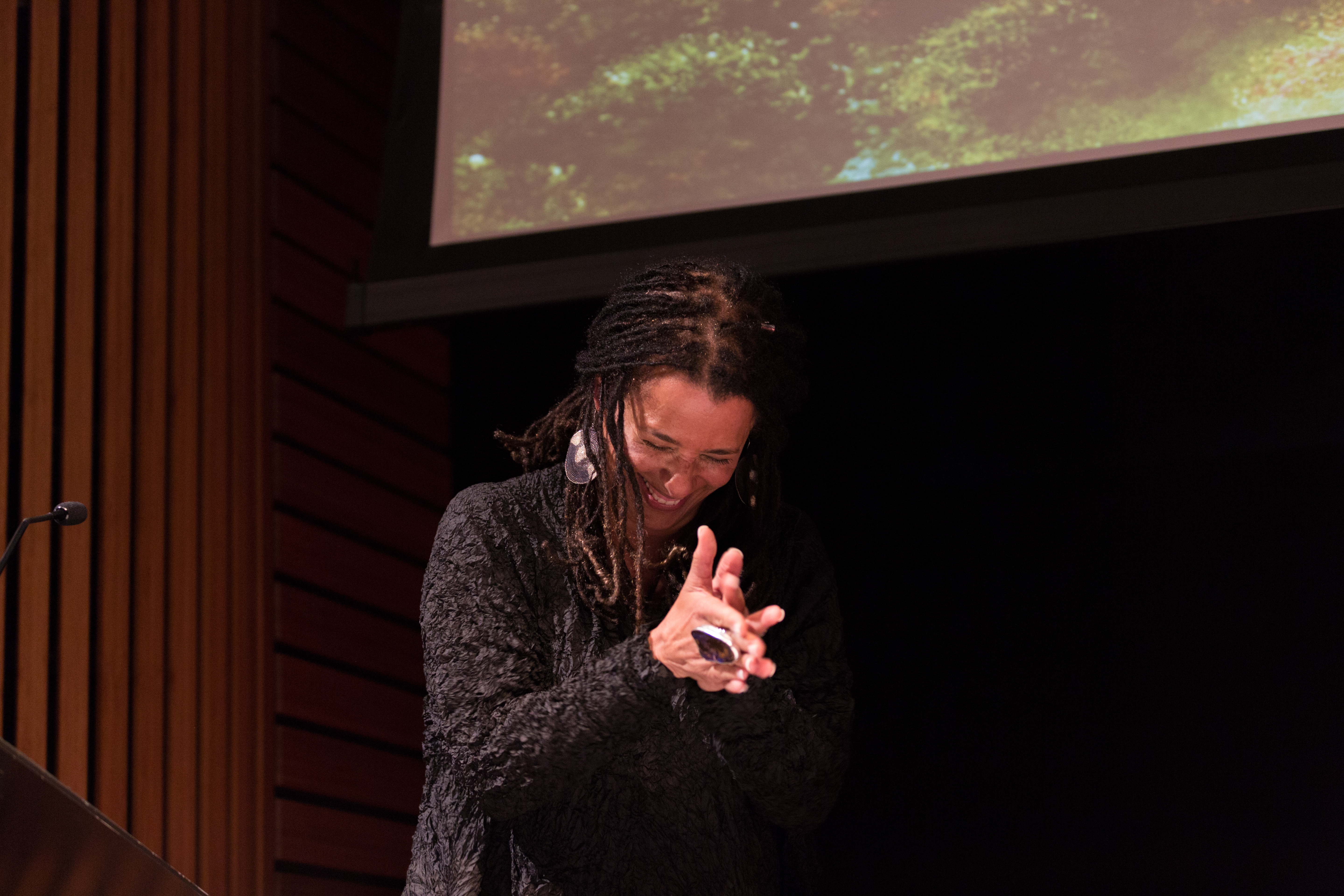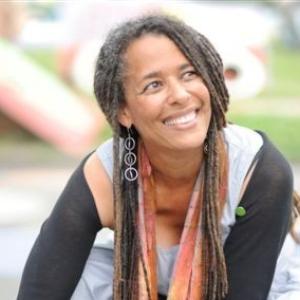Ten Thousand Recollections: Black Faces, White Spaces & the Possibility of US
Cultural geographer, performer, and author Dr. Carolyn Finney. Dr. Finney’s book, Black Faces, White Spaces: Reimagining the Relationship of African Americans to the Great Outdoors examines the representation, participation, and history of African Americans in U.S. parks and public lands. Her work asks us to reconsider public lands as racialized spaces and to explore the implications of this for the environmental movement. Further, she aims to “develop greater cultural competency within environmental organizations and institutions, challenge media outlets on their representation of difference, and increase awareness of how privilege shapes who gets to speak to environmental issues and determine policy and action”. She has served on the U.S. National Parks Advisory Board and was part of The Next 100 Coalition, a group aimed at improving diversity and inclusion in public lands and management. She recently left academia to pursue a full-time career of writing, speaking and consulting.
Upon publication in 2014, Black Faces, White Spaces encouraged nation-wide conversations about the racialization of public lands. Here’s a description of the book:
“Why are African Americans so underrepresented when it comes to interest in nature, outdoor recreation, and environmentalism? In this thought-provoking study, Carolyn Finney looks beyond the discourse of the environmental justice movement to examine how the natural environment has been understood, commodified, and represented by both white and black Americans. Bridging the fields of environmental history, cultural studies, critical race studies, and geography, Finney argues that the legacies of slavery, Jim Crow, and racial violence have shaped cultural understandings of the "great outdoors" and determined who should and can have access to natural spaces. Drawing on a variety of sources from film, literature, and popular culture, and analyzing different historical moments, including the establishment of the Wilderness Act in 1964 and the aftermath of Hurricane Katrina, Finney reveals the perceived and real ways in which nature and the environment are racialized in America. Looking toward the future, she also highlights the work of African Americans who are opening doors to greater participation in environmental and conservation concerns.”
This talk is sponsored by the WWU Sustainability, Equity and Justice Fund and co-sponsored by WWU Academic Affairs, the Department of Environmental Studies , the Political Science Department, the Anthropology Department and the Outback Farm.

About the Speaker

Carolyn Finney, Ph.D. is a writer, performer and cultural geographer. As a professor in Geography at the University of Kentucky, she became interested in issues related to identity, difference, creativity, and resilience. In particular, how issues of difference impacts participation in decision-making processes designed to address environmental issues. More broadly she likes to trouble our theoretical and methodological edges that shape knowledge production and determine whose knowledge counts. Carolyn is grounded in both artistic and intellectual ways of knowing - she pursed an acting career for eleven years, but a backpacking trip around the world and living in Nepal changed the course of her life. Motivated by these experiences, she returned to school after a 15-year absence to complete a B.A., M.A. and Ph.D. Dr. Finney is an alumni of WWU's Fairhaven College.
Environmental Speaker Series
The Environmental Speaker Series is hosted by the College of the Environment at Western Washington University.
The Series is free and open to the public. Talks are held each Thursday at 4:30 pm in Academic Instructional Center West room 204 - AW-204. Talks will also be streamed via zoom. Register with the Alumni Association for the zoom link. Paid parking is available in lot C.
Learn more about the Environmental Speaker Series
Subscribe to the Email List